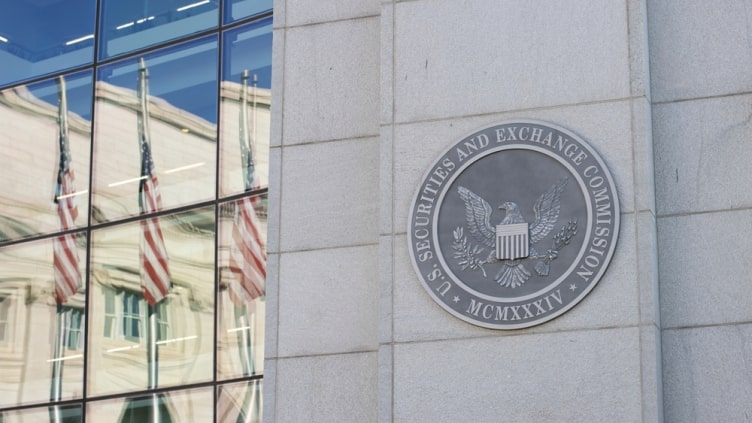Congressman Demands SEC Reveal Secret ETH Docs After Years of Mixed Signals—What’s Hiding?

Key Takeaways:
- U.S. Congressman William Timmons is demanding the SEC release internal documents revealing its shifting stance on Ethereum’s legal status.
- The letter cites confusion caused by the SEC’s inconsistent classification of ETH, especially between 2018 and 2024.
- Critical unreleased records include memos and emails tied to the “ETH 2.0” investigation, now at the center of transparency demands.
A major confrontation is brewing in Washington over Ethereum’s regulatory status. In a sharp move, Congressman William Timmons has formally requested the Securities and Exchange Commission (SEC) to release a trove of internal documents linked to its murky and ever-changing view on Ethereum (ETH). As digital asset regulations inch closer to reality with the proposed CLARITY Act, Timmons says the American public and crypto industry deserve transparency—especially after years of regulatory zigzagging.

SEC’s ETH Whiplash: Years of Contradictions Come to a Head
The Securities and Exchange Commission’s approach to Ethereum has been nothing short of chaotic. In 2018, then-Director of the SEC’s Division of Corporation Finance, William Hinman, publicly stated that Ether was not a security. That statement, echoed across the crypto world, gave Ethereum developers and investors a green light to build.
However, under former SEC Chair Gary Gensler, the tone shifted—dramatically.
The 2023 ETH 2.0 Investigation
Days before Gensler gave his congressional testimony in April 2023, the SEC had finally approved on the down-low a formal inquiry into whether Ethereum was a security. The investigation, “In the Matter of ETH 2.0,” amounted to a stunning turnabout. Gensler kept dodging the direct questions on how ETH should be classified and created a regulatory uncertainty. Critics argue that the confusion has been bad for innovation and has sent talent and capital out of the country.
Then, in a confusing turn of events in May 2024, the SEC greenlit spot Ethereum ETFs — something which only makes sense if ETH isn’t considered a security. Shortly after, the agency privately confirmed it had closed the ETH 2.0 investigation without any public explanation. No clarity. No accountability.
Read More: SEC Pushes Back Decision on Grayscale’s Avalanche and Cardano ETFs
Congressional Oversight: Timmons Turns Up the Heat
In a letter sent directly to SEC Chair Paul Atkins, Rep. Timmons is demanding answers. The letter isn’t vague—it explicitly names the documents he wants the SEC to release, which include:
- A memorandum titled “Analysis of Ethereum 2.0 under Howey”
- Emails and attachments sent to former Chair Gensler during the ETH 2.0 probe
- Case closing narratives from the investigation
- Internal emails with subjects like “ETH – Security or Not” and “Is Ethereum a security?”
These documents were previously identified in a Freedom of Information Act (FOIA) request by History Associates on behalf of Coinbase. While the SEC has confirmed the revelations, the agency has declined to release them, invoking several exemptions—making the industry even more suspicious within the crypto space.
Read More: SEC’s Surprise Move on DeFi Sparks Frenzy: Top CEOs React as Crypto Policy Shifts in U.S.
Why ETH’s Legal Label Matters
At issue in the debate is this crucial regulatory question: Is Ethereum a security or a commodity? The response could have wide-reaching consequences.
If Ethereum is deemed a security:
- All exchanges that list ETH would be required to register with the SEC.
- Securities law could also come to bite projects built on Ethereum.
- And the already approved ETH ETFs could suddenly find themselves in legal grey areas.
If it’s not a security:
- The Commodity Futures Trading Commission (CFTC) would retain oversight.
- Ethereum would follow the same regulatory treatment as Bitcoin.
- Innovation in DeFi and Web3 might accelerate due to reduced compliance fears.
Timmons says the stakes are too high for opacity. “Disclosing these documents will help Congress, market participants, and the public better understand how and why the SEC’s position on ETH shifted under Chair Gensler,” he wrote.
Spotlight on the SEC’s “Regulation by Enforcement” Strategy
Timmons also took aim at what critics call the SEC’s most damaging pattern—regulating the crypto industry through enforcement actions instead of clear guidelines.

Instead of offering clear rules, the SEC has focused instead on some high-profile cases against the likes of Coinbase, Ripple, Kraken and others. In a number of these enforcement actions, these definitions have been based on vague readings of the Howey Test — a 1946 Supreme Court decision intended for citrus groves, not blockchains protocols.
This method has come under from a great deal of criticism:
- Coinbase Chief Legal Officer Paul Grewal previously called the SEC’s tactics “deeply inconsistent.”
- Former CFTC Chair Christopher Giancarlo argued it undermines America’s competitive edge in blockchain development.
- Lawmakers from both parties have echoed calls for a clear, technology-neutral regulatory framework.
Timmons’ letter is a sign of the increasingly bipartisan view that the current state of affairs cannot continue. If Ethereum — the world’s second-largest cryptocurrency by market cap — can’t obtain a clear classification after almost a decade, how much hope is there for smaller projects?
Mounting Pressure on the SEC
The release of the Vaughn indices—which catalog documents the SEC attempted to withhold—has only intensified public scrutiny. These indices are now available on Coinbase’s website and confirm that critical internal communications about Ethereum’s classification exist.
Meanwhile, the CLARITY Act continues to gain traction in Congress. The Act aims to set formal definitions for digital assets and clarify the roles of the SEC and CFTC in crypto oversight. But until legislation passes, enforcement discretion remains the SEC’s most potent weapon.
Timmons’ efforts may mark a turning point. By forcing the SEC to disclose its historical reasoning, he’s not just calling out inconsistencies—he’s laying the groundwork for reform.
The post Congressman Demands SEC Reveal Secret ETH Docs After Years of Mixed Signals—What’s Hiding? appeared first on CryptoNinjas.
